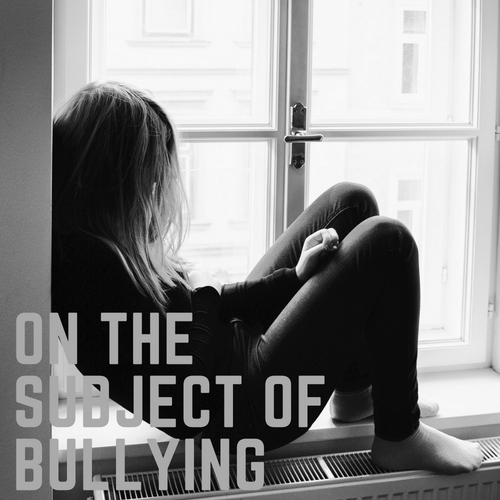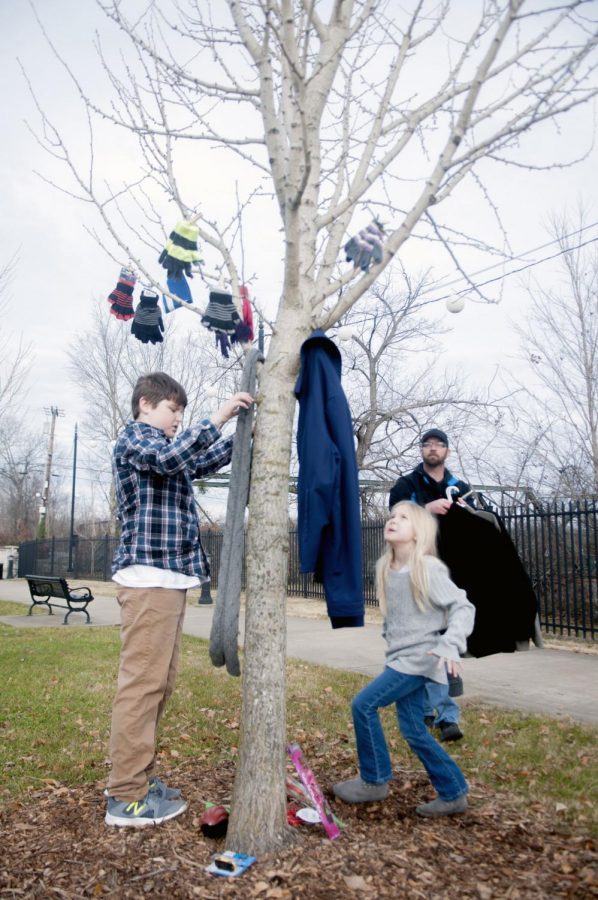On the Subject of Bullying
May 21, 2018
As I was turning the corner one day, I witnessed a senior shoving a freshman into the lockers. He threw slurs and hate-filled words at the kid and much to my dismay, no one did anything about it.
Bullying is an ever-growing problem in communities everywhere. From physical to verbal harassment to even cyber bullying, it’s something that plagues the lives of many young students.
Greenwood’s policy for bullying could be seen as vague. In the handbook, it gives a clear explanation as to what bullying is. “A student is bullied or victimized when he or she is exposed, repeatedly over time, to negative actions…It is a negative action when someone intentionally inflicts or attempts to inflict injury or discomfort through physical aggression, verbal threatening, taunting, teasing or name-calling.”
While its definition is straight to the point, the handbook doesn’t give any idea as to what disciplinary actions might be taken if someone was bullying their fellow peers. The handbook simply states: ¨Bullying will not be tolerated, and students who are found to bully others will be subject to disciplinary action.”
Yet, are bullies really disciplined at Greenwood High School?
I am often witness to students putting down their fellow peers and the teachers not doing very much about it. I have personally been up to the office many times on the subject of bullying and as far as I know, not much was done. If anything, the bully simply gets ALC for a few days and then are sent back to class. Unfortunately, however, as soon as they get back to class, the vicious cycle of bullying and harassment starts over.
As someone who has been a victim of bullying myself, this apparent disregard for bullying is concerning.
Since I was toddler, I’ve always been told to defend myself if a bully ever decides to hurt me physically or verbally. Imagine my surprise when I was told in the eighth grade that no, it is not okay to defend yourself in case somebody attacks you.
According to stopbullying.gov, there are things you can do if you are being bullied: “Look at the kid bullying you and tell him or her to stop in a calm, clear voice. You can also try to laugh it off. This works best if joking is easy for you…”
“Don’t fight back,” the site says. If speaking up seems too hard or not safe, you should walk away and stay away. Find an adult to stop the bullying on the spot.
Well, if sending a bully to ALC won’t stop the bullying and since we’re not allowed to defend ourselves in certain circumstances, how do we end bullying? Should teachers be more aware of the situations that go on in their classes? Or should there be harsher punishments for bullying? What can there be done to end this problem?
According to Sophomore Maleesha Kitchens, there should be harsher punishments for bullying. “Depending on the severity [of the incident], being expelled or suspended. Getting the police involved for certain incidents…paying a fine.”
Zelda Little, a friend of Kitchens, expressed that teachers often shrug off bullying. “They see it [bullying] as young kids just saying young things to each other…unless it’s like a curse word then they’ll say ‘Don’t say that word in my class!’ But other than that, they don’t ever address the bullying itself…”
“Most of them [teachers] shrug it off until they think it gets bad or that the bullying goes too far,” Shelby Castner said in agreement to Little, “then they don’t do anything about it.”
In order to end bullying, our first step is to have teachers be more vigilant toward students who bully their peers. Doing this, teachers could catch the bullies before it gets too worse. Our administrators need to clearly define the zero-tolerance policy and the consequences of it–with much harsher punishments than ALC. With harsher punishments, such as being expelled or suspended–or possibly even paying a fine–as Kitchens mentioned, these bullies might avoid becoming repeat offenders.
But this also doesn’t mean the bullying would necessarily end. The most important asset in ending bullying would be the students of Greenwood itself. Without the help of students, or the bystanders, in situations where bullying arises, then nothing would change.
A study of more than 7,000 students in 77 elementary schools in Finland found that the KiVa program greatly benefited the mental health of sixth-graders who experienced the most bullying. This program includes role-playing exercises to increase the empathy of bystanders and computer simulations that encourage students to think about how they would intervene to reduce bullying.
Perhaps with clearer definitions of the zero-tolerance policy, harsher punishments, and programs dedicated to bystander intervention, then something about this bullying issue can be done.



